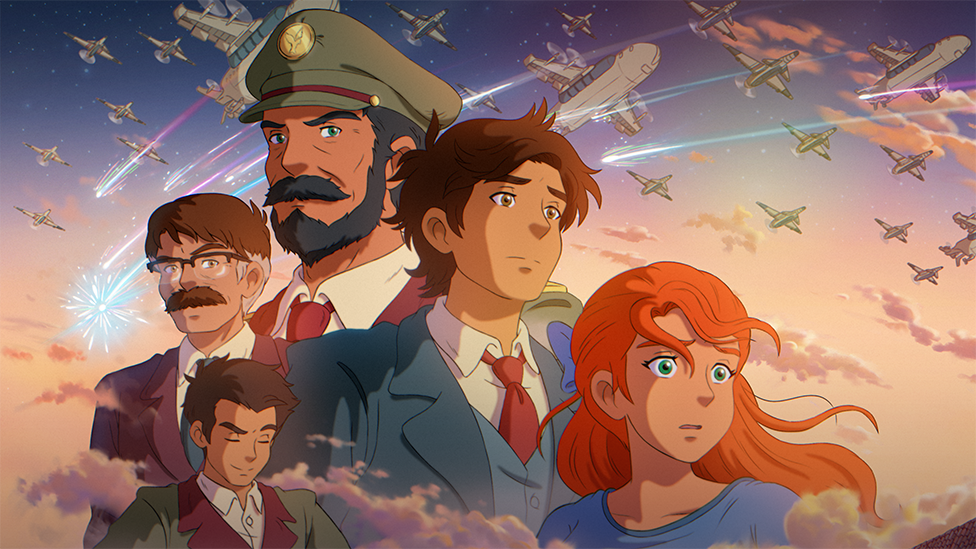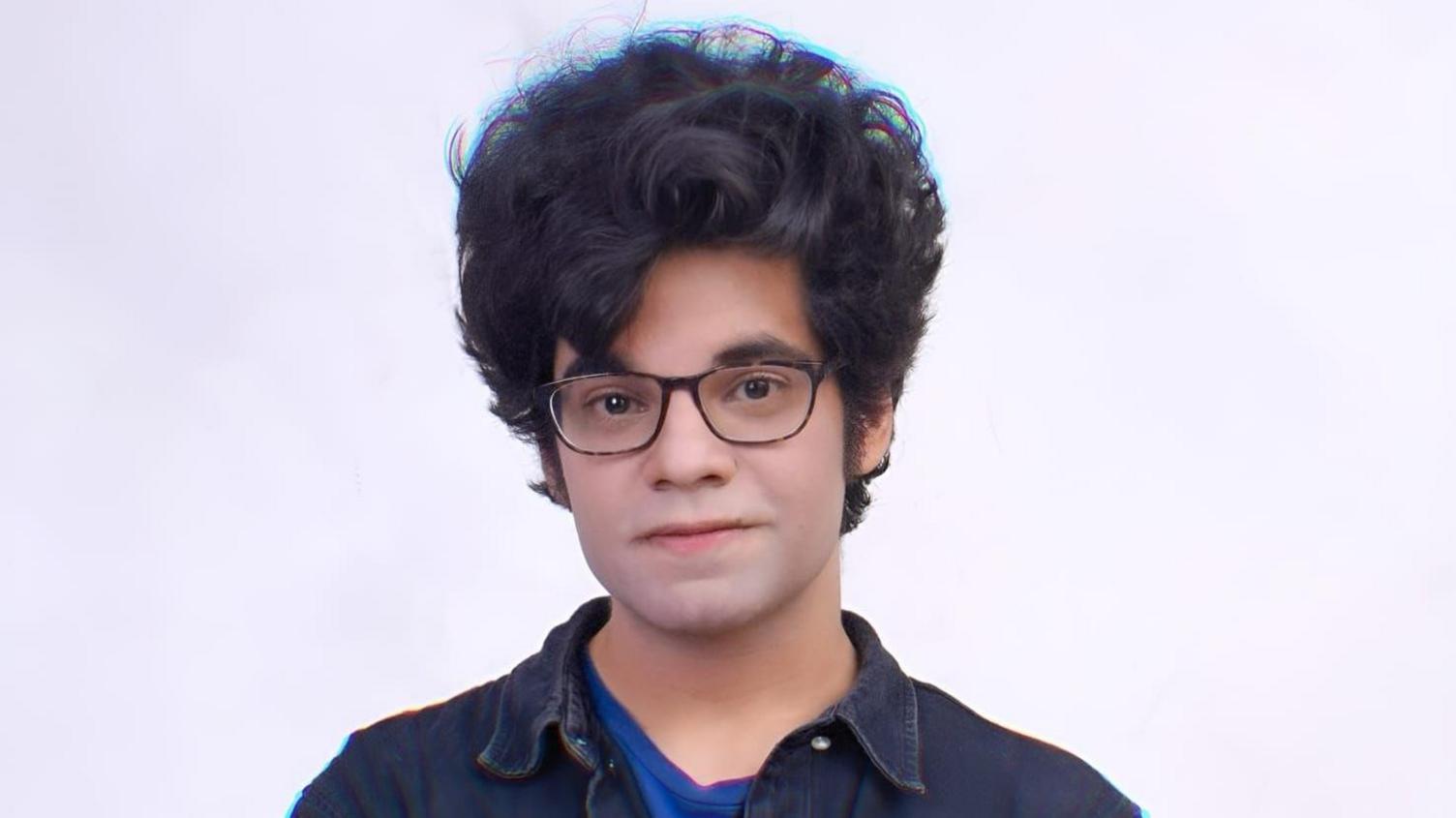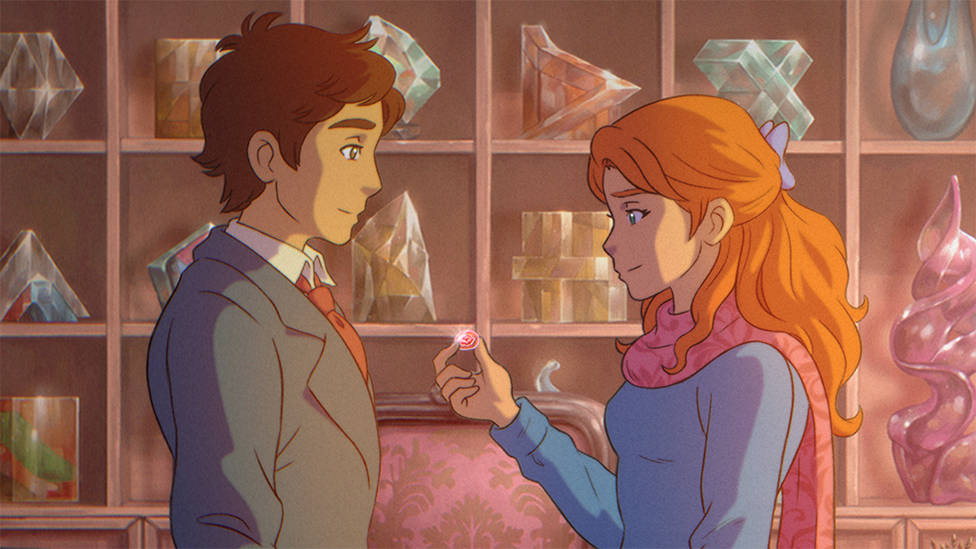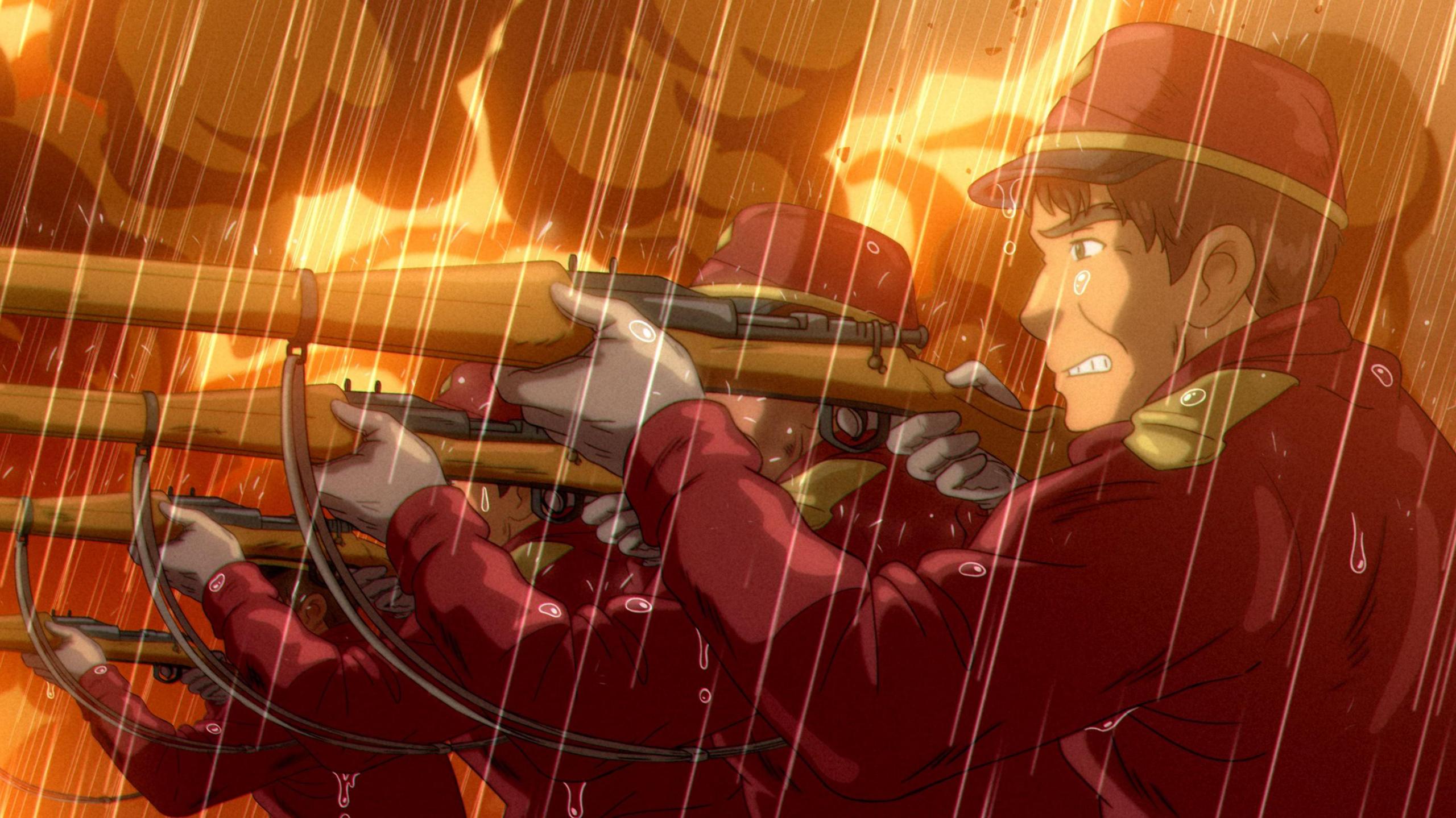How a sketch blossomed into Pakistan's first Ghibli-style animation

The Glassworker is Pakistan's first hand-drawn animated feature film
- Published
Ten years ago, musician Usman Riaz grabbed a pencil and started to sketch.
He might have hoped, but didn't know at the time, that it would start him on a path to making history.
That initial drawing became The Glassworker - Pakistan's first ever hand-drawn animated feature film.
It follows the story of young Vincent and his father Tomas, who run a glass workshop, and a war that threatens to upend their lives.
Vincent's relationship with violinist Alliz, the daughter of a military colonel, begins to test the bond between father and son.
Usman tells BBC Asian Network the characters ultimately come to learn "that life is beautiful but fragile, like glass”.
He describes The Glassworker as an "anti-war film" set in an ambiguous and fantastical world that takes inspiration from his home country.
“I wanted to tackle issues and themes that would have been difficult to tackle if it was based in Pakistan," he says.
The country doesn't have the thriving film industry of neighbouring India and there is no government support or incentive for budding creatives like Usman.
So The Glassworker was a passion project, he says.
“These 10 years for me have just been purely driven with passion and obsession.
“Since I was a child, I have loved hand-drawn animation and there's something so magical about it.
"The beauty of the lines drawn and painted by the human hand always resonated with me.”
Usman says he travelled the world looking for mentors and his search took him to Japanese animation house Studio Ghibli.
The influence of the Oscar-winning artists behind classics such as Spirited Away and Princess Mononoke can be seen in The Glassworker's own style.
Usman says the industry veterans at Ghibli were also the ones who encouraged him to start the production himself.
After raising $116,000 through a 2016 crowdfunding campaign he founded his own studio, Mano Animations.
From there it's been a painstaking process, especially since full production started in 2019.
“What you are watching is essentially a moving painting,” says Usman.
“Every single frame you see, whether it's a background or the character moving, it's all drawn by hand.”
Usman says that, so far, he hasn't made any money from the project and has been unable to pay his wife Maryam and cousin Khizer, who he recruited to help him.
But there's hope that the labour of love could be the start of something bigger.

Usman Riaz says he's always been a fan of animation
Sharmeen Obaid Chinoy is another experienced industry figure Usman turned to for advice about getting The Glassworker off the ground.
She directed 3 Bahadur, a computer-generated tale that was Pakistan's first-ever animated feature film.
On its 2015 release it broke box office records, even surpassing US imports and dethroning previous record-holder Rio 2.
Her studio was also the country's first female-led animation studio, and she understands the challenges of getting started better than most.
“Everything in Pakistan is driven by passion” she says. “I had to run pillar to post.
“We're a country that has limited access to electricity and our industry is heavily taxed.
"We're unable to import computers and hardware needed for animation.”
But Sharmeen – who is going to direct upcoming Star Wars film New Jedi Order – says The Glassworker could be a “monumental step” for Pakistan’s animation scene.
If it finds commercial success, she believes it will “ignite” something in the country, but there are barriers to home-grown animation becoming a red-hot trend.

The Glassworker is partly about the romance between characters Vincent and Alliz
Arafat Mazhar from Lahore-based Puffball animation agrees that “the technical skills are already there” in Pakistan despite there being “no formal training or schools available”.
But “how do you not censor yourself?” he asks.
It's a question facing any Pakistani filmmaker who has to deal with its strict board of film censors.
“Every time there's a good film that comes out that's sincere, the state ends up censoring it,” says Arafat.
He doesn't believe the rules are likely to relax soon.
Sharmeen agrees the government will only encourage the domestic film industry to grow if they work to "provide opportunity to create a level playing field for us to compete with the rest of the world".
“There is a lot of scope in Pakistan for animation," she says. "We've just never been given the opportunity to create it."
She shares Arafat's pessimism about the pace of change.
"Unfortunately, it will just be a few filmmakers who have that passion, who will continue to create films," she says.
But Sharmeen says she is eager to see how the world embraces The Glassworker.
"I know that there is so much in there that will touch people's hearts," she says.

Usman says The Glassworker has an anti-war message
Usman will finally get to find out how audiences react to the work he's spent 10 years pouring his energy into as The Glassworker goes on general release.
He says he hopes to “put Pakistan on the map” and show it can stand up to the giants across the border in Bollywood.
But he admits the process has been “gruelling”.
“It is extremely difficult, but we've done something nobody has ever done in the country before," he says.
"I think we've created something special that can stand toe-to-toe with the rest of the animation produced in the world.”
